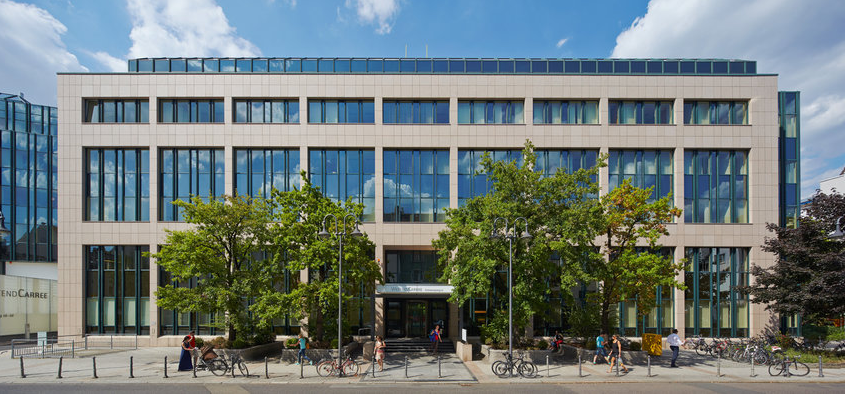




The Max Planck Institute for Empirical Aesthetics. Photograph obtained from the official website.
Why do people perceive music and literature as varying in their beauty based on factors such as culture, society, historical period and individual taste? The Max Planck Institute for Empirical Aesthetics, founded in 2012, aims to use scientific methods to explain the psychological, neuronal and socio-cultural basis of aesthetic perceptions and judgements. The institute, which is currently in the process of being established, will be managed by a Board of Directors consisting of four scientists whose expertise covers the areas of literature, music, and the empirical cognitive and social sciences. The research programme will focus on music and literature, and, in cooperation with the Max Planck institutes for art history in Florence and Rome, the visual arts. Other fields, such as architecture and fashion will be incorporated by way of Max Planck research groups and Max Planck fellows from universities. In addition, the scientists will regularly invite “artists in residence”, in particular composers and writers, to the Institute to participate in research projects.
Learn more at their official website:

Inspired by the homonymous book by Fernando Vidal and Francisco Ortega, this timespace presents the authors' genealogy of the cerebral subject and the influence of the neurological discourse in human sciences, mental health and culture.